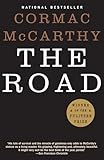The poetry community is looking inward after revelations about the treatment of a 34-year-old subject suffering from an extremely rare condition called aprosodia: the total inability to detect poetic meter. The subject’s identity remains undisclosed for privacy reasons, but officials did reveal that he is a college English professor and that his name is trochaic. “It has a nice tripping lilt to it,” said the lead meter scientist at the National Prosody Center, which bills itself as the world’s most stressful workplace.
The NPC had long been aware of the subject’s existence. His high school English teacher queried the center after the otherwise sharp student failed to grasp the basics of iambic pentameter. “The wóods decáy, the wóods decáy and fáll. Da-dum, da-dum, da-dum, da-dum, da-dum. Nothing. He would just stare at me in utter incomprehension,” said the teacher.
The subject learned to fake the ability to scan during his graduate studies, nodding sagely when a classmate pointed out an inverted foot or a cheeky instance of catalexis. And yet, because he could not hear any of the metrical effects described, he began to think of himself as the victim of an elaborate hoax. His psychological state deteriorated, and he was finally admitted to the National Prosody Center after accusing a colleague of communicating with foreign agents via his metrical notation of Elizabethan verse.
A subsequent MRI revealed that the areas of the subject’s brain that normally lit up during scansion remained completely dark. Over the next several months, researchers devised an audacious plan to rehabilitate him that pushed the bounds of prosodical ethics.
First, they tried animal therapy. The subject received daily visits from Donovan the Dactylic Duck, a waterfowl trained to vocalize in a distinctive pattern: “Qúack quack quack, Qúack quack quack.” He enjoyed these visits but consistently failed to replicate Donovan’s dactyls on a decoy.
Next, NPC researchers attempted sleep deprivation therapy, locking the subject in a padded room while piping in Anglo Saxon verse day and night. By the third morning, he seemed to be grasping the basics of the alliterative-stress meter, but the experiment had to be suspended after he attacked an orderly he thought was Grendel’s mother. (“A brief caesura until his visions subside,” a NPC spokesperson noted.)
The subject was then put on a diet of limericks, the restorative effects of anapestic trimester being well documented. Indeed, he gave researchers hope when he appeared to have correctly identified a pyrrhic foot, but subsequent tests revealed it to have been a lucky guess. (“An ultimately hollow victory,” admitted a NPC spokesperson.)
Stymied, the brass decided to bring in its heavy hitter: U.S. poet laureate Tracy K. Smith. She saw it as her mission not only to spread the love of poetry to the general public, but also to beat the principles of poetic stress into any and all. Meeting the subject in the NPC’s boxing ring each morning, Smith demonstrated flawless pugilistic and poetic technique in pummeling the refractory denier with virtuosic combinations of weak and strong punches—all according to the strictures of various meters.
Preliminary results were promising, as the daily lessons appeared to be penetrating the subject’s thick skull. However, Smith took things too far in one sparring session when, feeling she was nearing a breakthrough, she unleashed a hard thud of a spondee that knocked him senseless.
This time the AMA intervened, calling a halt to any future experiments. Furthermore, the ACLU declared that even mentioning the metrical complexities of Hopkins’s sprung rhythm within the patient’s earshot would violate his civil liberties.
The failure was a blow to the reputation of the National Prosody Center, which had earned plaudits for its work with another subject, “The Ear,” known for her ability to detect over 300 distinct stress levels. (She currently presides over a metrical review board that resolves disputes between bickering prosodists.) The controversy also affected the center financially. Owing to the backlash, sales of the NPC’s footware line, Fresh Kictus, plummeted.
The case of the man who couldn’t scan thrust scansion to the forefront of roiling intellectual debates. Some claimed the subject was the ideal poetic reader, immune to the hegemonic structures embedded in both meter and society. “I prefer not to scan” became the rallying cry for those seeking a radical democratization of the heretofore fascistic poetic line. Others took a reactionary stance, arguing that he was a symptom of metrical decadence: His inability to discern the most basic pattern of stresses reflected a larger societal collapse of moral values.
After recovering from his Tracy K. Smith tutorial, the subject seemed baffled by the buzz surrounding his strange affliction and expressed an eagerness to return to his normal life. One sympathetic NPC researcher slipped a copy of Pope’s An Essay on Criticism in his bag as he was being discharged. In the hopes that the shoddy treatment wouldn’t turn the metrically challenged man off poetry for good, she had highlighted the following passage:
But most by numbers judge a poet’s song;
And smooth or rough, with them is right or wrong:
In the bright Muse though thousand charms conspire,
Her voice is all these tuneful fools admire,
Who haunt Parnassus but to please their ear,
Not mend their minds; as some to church repair,
Not for the doctrine, but the music there.
The subject has adjusted to life outside the center and resumed teaching. He still has weekly visits with Donovan the duck.
Image Credit: Wikimedia Commons.




